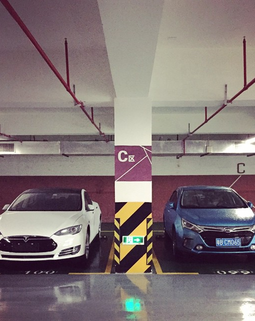Thailand's automobile sector has experienced a substantial decline in production, largely due to a decrease in pickup truck sales and a transition towards electric vehicles (EVs). According to data from the Federation of Thai Industries (FTI), auto production declined by 12.46% in January 2024 compared to the previous year, with a significant decrease in the production of pickup trucks and internal combustion engine (ICE) passenger cars.
Pickup Truck Sales Decline:
In January 2024, domestic automobile sales in Thailand experienced a 16.42% decrease, primarily attributed to a significant decline in pickup truck sales, as banks implemented stricter lending criteria to mitigate elevated household debts.. The FTI's vice president and spokesperson, Surapong Paisitpattanapong, stated that the loan rejection rate in the pickup segment is high, especially compared to the passenger car segment, indicating financial institutions' caution in expanding car seizures. This trend has significantly impacted Thailand's auto production, as pickup trucks are a crucial segment in the country's automotive market.
Surge in Electric Vehicle Sales:
While pickup truck sales have plummeted, Thailand has witnessed a surge in electric vehicle sales. Battery electric vehicle (BEV) sales captured a notably larger portion of the Thai market, surging to 17.81% of total auto sales in January 2024. Several Thai automakers have initiated local BEV production, resulting in a remarkable 9,214% increase in output compared to the previous year, reaching 652 units.The rise in EV sales can be attributed to the increasing affordability of electric vehicles and growing consumer interest in this segment.
Impact on Exports and Production Targets:
Thailand's finished car exports edged down by 0.08% in January 2024 compared to the previous year, primarily due to a vessel space shortage.Despite the obstacles, the FTI remains steadfast in its auto production goals for both domestic sales and exports this year, set at 1.90 million units, reflecting a 3.17% rise from the actual output in 2023. However, the federation acknowledges the need for state stimulus measures to prop up people's purchasing power and support the recovery of the automotive industry.
Conclusion:
Thailand's auto production slump, driven by a decline in pickup truck sales and a shift towards electric vehicles, highlights the evolving dynamics of the country's automotive industry. While the surge in EV sales presents opportunities for growth, the challenges faced by the pickup truck segment and the impact on exports require strategic interventions to support the industry's recovery. As Thailand navigates through these changes, the automotive industry remains a crucial contributor to the country's economic development, and the FTI's production targets reflect the industry's resilience and adaptability in the face of adversity.





